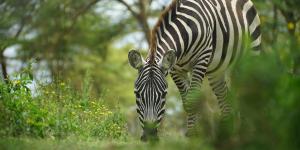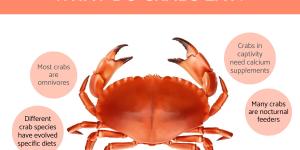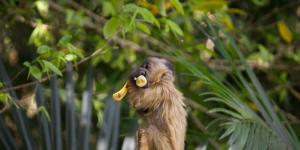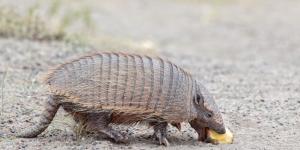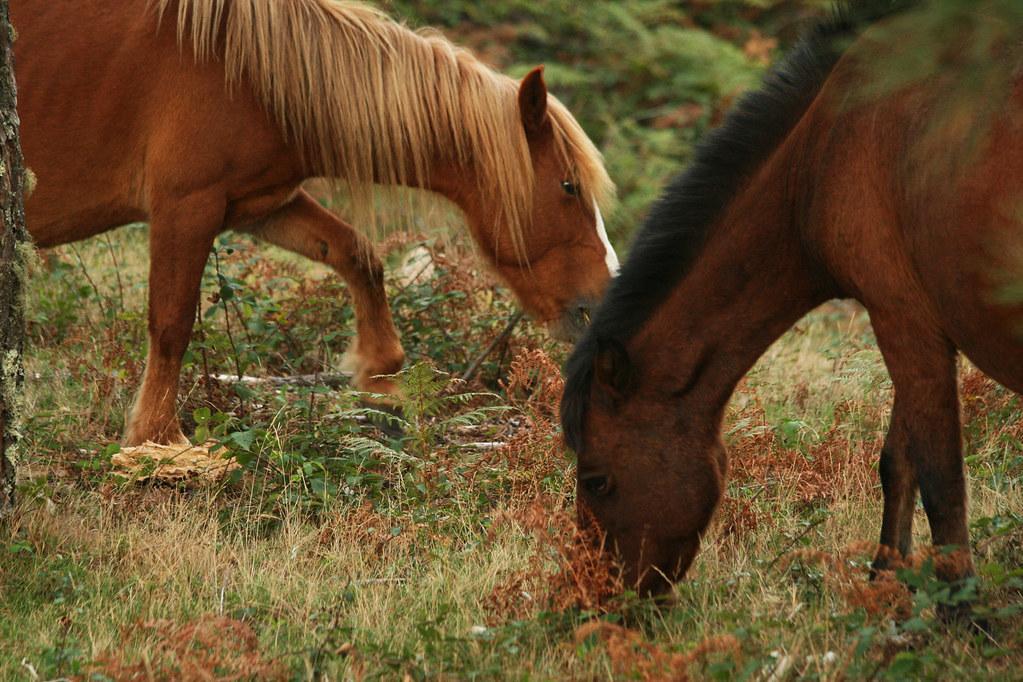What Do Horses Eat?

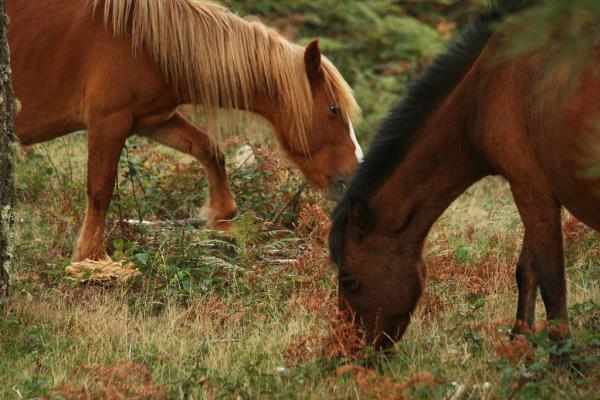

See files for Horses
Horses are herbivores and their diet consists mainly of forage such as hay, grass and other plants. The type and amount of feed horses need depends on several factors such as age, weight, activity level and general health of the horse. In addition to forage, horses also require a balanced diet of grains and supplements to meet their nutritional needs. A horse's diet should be carefully planned and monitored to ensure that the horse is properly nourished and maintains a healthy weight.
In the following AnimalWised article, you will learn what wild and domestic horses eat, as well as some other interesting facts about the horse's diet.
The diet of horses
Horses are herbivores, which means that their diet consists of plant materials such as grass and hay. Horses are known as "continuous grazers" and have a natural instinct to forage throughout the day. They typically consume small amounts of food over long periods of time, rather than eating large meals.
Listed below are some interesting facts about the diet of horses and how they eat and digest their food:
- Horses have a unique digestive system designed to break down plant matter such as fiber and cellulose. They are able to extract nutrients from fibrous foods that other animals cannot digest.
- Horses are also "hindgut fermenters," meaning they digest their food mainly in the large intestine rather than the stomach. This is why, unlike humans, horses have relatively small stomachs that can only hold a small amount of food at a time. Most digestion takes place in the hindgut, which includes the appendix and the large intestine.
- The appendix is a large fermentation chamber in the horse's digestive system where fiber and other complex carbohydrates are broken down by bacteria and other microorganisms. This process produces volatile fatty acids that are absorbed by the horse's body as a source of energy.
- Horses require at least 1-2% of their body weight in feed per day. This can be hay, pasture grasses or other forms of forage.
- The quality of forage and grains a horse consumes can have a significant impact on its overall health and well-being.
- Horses can suffer from digestive issues such as colic, which can be caused by a range of factors such as dehydration, overfeeding, and the consumption of indigestible materials.
The amount and type of feed a horse needs can depend on a number of factors, including age, weight, activity level and overall health. The following sections will describe how horses' diet varies according to these factors. However, this article is for reference only. It is important that you consult a veterinarian or equine nutritionist to develop an appropriate nutrition plan for your horse.
This other article on horse neighing may be of interest to you.
What do domesticated horses eat?
To determine what the diet of a domestic horse should be, it is important to consider whether the horses live outdoors (extensive) or in a stable (stabled). Stable horses and extensive horses refer to two different housing systems for horses. Here are some differences between the two:
- Environment: stabled horses are kept in a confined area, usually a barn or stable, while extensive horses are allowed to roam in pastures or other open areas.
- Exercise: Extensive horses often have more exercise than stabled horses because they have more space and are often allowed to graze and run freely.
- Social Interaction: Extensively kept horses are more likely to interact with other horses and other animals in their environment, while stabled horses have little contact with other horses and people.
Diet is another factor that differs between the two groups. Stabled horses may have a more controlled diet than extensive horses, as they are typically fed hay, grain, and supplements in specific amounts. Extensive horses, on the other hand, may graze on grass and other plants, which can vary in nutritional content.
Diet of the stabled horse
A horse's stable diet depends on a variety of factors, including the horse's age, weight, activity level and health status. However, as a rule of thumb, it should include the following:
- Hay: horses should have access to high quality hay or haylage at all times. For horses in the barn, it is dried rather than fresh. The type of hay depends on the availability and nutritional needs of the horse. Alfalfa hay is rich in protein and calcium, while grass hay is lower in protein but higher in fiber.
- Grains: some horses may need additional calories or nutrients in the form of grains or concentrates. The amount and type of feed depends on the horse's activity level, age and overall health. It is important to avoid overfeeding grain, as this can lead to digestive problems and other health issues.
- Vegetables: they may also eat vegetables such as carrots, beets, and turnips as treats or supplemental feeds.
- Fruits: horses may also eat fruits such as apples, bananas, and watermelon as treats or supplements.
- Supplements: horses may need additional supplements to maintain a balanced diet. These may include vitamins, minerals, electrolytes, or probiotics.
- Water: they should have access to clean, fresh water at all times. This is especially indispensable when horses are fed hay or concentrates, as these can be dry and lead to dehydration.
The daily ration should be between 1.5 and 2% of the animal's weight and consist of concentrate and forage. However, the amount can be increased up to 2.25% for animals that move intensively, and even up to 2.5% for pregnant or lactating mares, growing foals or horses that move very intensively.
The ratio between forage and concentrates is also important. Generally, they are fed in a 50/50 ratio, although for horses with higher energy needs, the amount of concentrate can be increased in proportion to the amount of forage. However, the forage ratio should never be reduced below 35%.
Stabled horses may be fed smaller meals more frequently throughout the day to mimic their natural grazing behavior and promote good digestive health.
Diet of the extensive horse
The diet of an extensively grazed horse depends on the quality and quantity of forage available, as well as the age, weight, and activity level of the horse. The amount and quality of forage available will depend on the season, weather, and management practices.
Horses that graze on pasture eat primarily grass as well as other plants and weeds that are available, which contain a lot of water and have a low energy value. As they do not have a concentrated source of energy in their diet, grazing horses spend many hours eating. It is important to be careful not to overgraze the pasture, as this can lead to a lack of available forage and nutrient deficiencies.
Extensive horses generally get more exercise than stabled horses, so their caloric needs may be higher. They may also require more protein and other nutrients to support their activity level and muscle maintenance.
It is critical to monitor the condition of horses grazing in the pasture to ensure they are at a healthy weight and in good body condition. Horses may need supplemental feed or hay if the quality or quantity of pasture is inadequate. It is essential to work with a veterinarian or equine nutritionist to ensure that the horse is receiving a balanced and appropriate diet for its individual needs.
You may also be interested in this other article where we explain how horses reproduce.
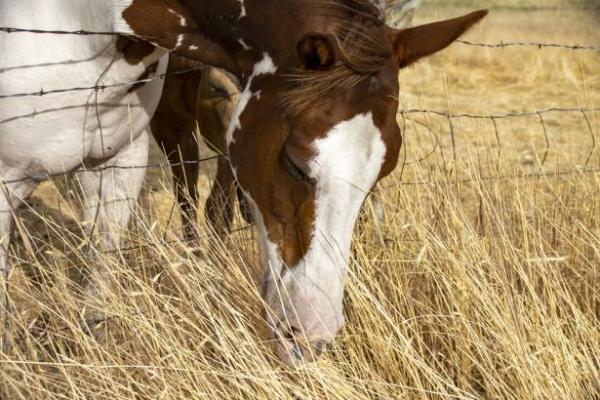
What do wild horses eat?
Wild horses, also known as feral horses, feed primarily on grasses and other plants that grow in their natural habitat. The exact diet of wild horses may vary depending on the region and the availability of food sources.
Here are some common foods that wild horses may eat:
- Grass: wild horses are adapted to eat a variety of grasses, including native grasses and introduced species. Wild horses can also eat a variety of forbs, including clover, dandelions, and wildflowers.
- Shrubs: horses in the wild may also eat shrubs and woody plants that grow in their habitat, especially in winter when other food sources are scarce.
- Trees: in some regions, wild horses also eat the bark and branches of trees, especially during times of drought or other food shortages.
In general, in order to survive, wild horses must adapt to changes in their environment and feed on a larger area and a greater variety of foods.
Do not miss the following article where we discuss what wild horses are and the different subspecies of horses that exist in the world.
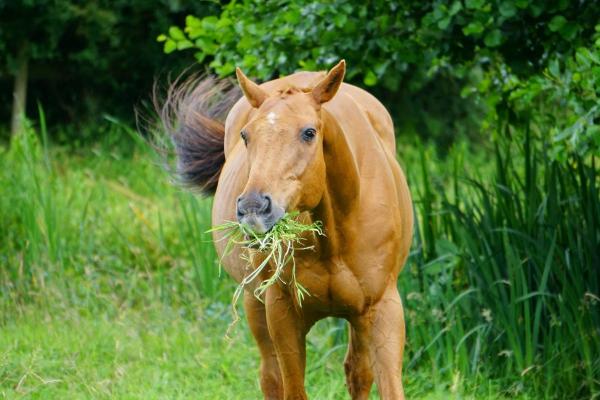
What should you never feed a horse?
There are some foods that should not be on a horse's diet because they can cause health problems or digestive disorders. Here are some examples:
- Sugary treats: horses may like sugary treats such as candy or cookies, but these should be given in moderation, if at all. A high-sugar diet can increase the risk of metabolic disorders such as equine metabolic syndrome and insulin resistance.
- Moldy or spoiled feed: moldy or spoiled feed can contain toxins that can cause colic, indigestion, or even death in horses.
- Human food: human food is not suitable for horses and may contain ingredients that can cause digestive upset or toxicity. Horses should not be fed chocolate, avocados, onions, garlic, or foods containing caffeine.
- Food of animal origin: as we have already explained, horses are herbivores whose digestive system is exclusively designed to process and absorb food of plant origin. For this reason, all foods of animal origin (meat, fish, milk, eggs, etc.) must be excluded from the horse's diet.
- Pasture plants toxic to horses: some plants commonly found in pastures may be toxic to horses, e.g., black walnut, red maple, and some varieties of clover.
- Non-food items: horses should not ingest non-food items such as dirt, rocks, or bedding material, as this can cause digestive upset or other health problems.
If you want to read similar articles to What Do Horses Eat?, we recommend you visit our Healthy diets category.

